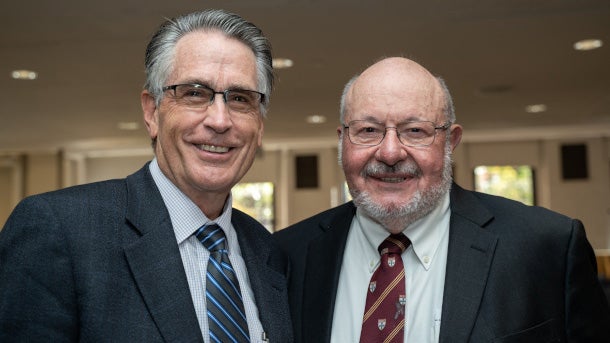Air pollution exposure in infancy may limit economic mobility in adulthood

For immediate release: September 9, 2024
Boston, MA—Higher exposure to fine particulate air pollution (PM2.5) during infancy was associated with lower economic earnings in adulthood in a new study from Harvard T.H. Chan School of Public Health, Harvard John A. Paulson School of Engineering and Applied Sciences, and European University of Rome. The association was most pronounced in the midwestern and southern U.S.
“This study takes a big step toward filling the knowledge gap on the crucial link between environmental factors and long-term economic outcomes,” said corresponding author Francesca Dominici, Clarence James Gamble Professor of Biostatistics, Population, and Data Science at Harvard Chan School and faculty director of the Harvard Data Science Initiative. “The findings suggest that air pollution can have lasting impacts beyond health effects—and that these impacts vary across regions and populations.”
The study was published September 9 in The Proceedings of the National Academy of Sciences.
The study builds upon previous investigations of the relationship between PM2.5 exposure and economic opportunity by using more granular data as well as state-of-the-art causal inference methods to adjust for socioeconomic and demographic confounders. The researchers analyzed data on PM2.5 exposure and economic earnings from 86% of all U.S. census tracts—small statistical subdivisions of a county— from 1980 to 2010. They focused on people born from 1978-83, looking at their mean earnings in 2014-15 when they were between the ages of 31-37. To measure economic mobility, they used a statistic called absolute upward mobility (AUM), which is defined as the mean income rank in adulthood of children born to families in the 25th percentile of the national income distribution.
The study found that the higher a person’s exposure in infancy to PM2.5, the lower their earnings in adulthood. Nationwide, on average, an increase in PM2.5 exposure by one microgram per cubic meter (μg/m3) in 1982 was associated with a 1.146% lower AUM in 2015. The study also found that PM2.5 exposure had an outsize impact on AUM in specific regions of the U.S., particularly in the Midwest and South.
“Our findings underscore the necessity of implementing stringent air quality standards nationally,” said co-lead author Luca Merlo, researcher at European University of Rome. “They also suggest the necessity of locally tailored interventions to mitigate air pollution and of integrated policies that address both environmental and economic inequalities.”
Sophie-An Kingsbury Lee, a student at Harvard John A. Paulson School of Engineering and Applied Sciences, was a co-lead author.
The study was funded by the National Institutes of Health (grants R01MD012769, R01ES028033, 5R01AG060232, R01ES030616, R01AG066793, 1R01ES029950, RF1AG07437201A1, R01MD016054, R01ES034373, RF1AG080948, RF1AG071024, R01ES34021, 1U24ES035309, P30ES000002) and the Alfred P. Sloan Foundation (grant G-2020-13946).
“Childhood PM2.5 exposure and upward mobility in the United States,” Sophie-An Kingsbury Lee, Luca Merlo, Francesca Dominici, The Proceedings of the National Academy of Sciences, September 9, 2024, doi: 10.1073/pnas.2401882121
Visit the Harvard Chan School website for the latest news, press releases, and events from our Studio.
image: iStock/MarKord
For more information:
Maya Brownstein
mbrownstein@hsph.harvard.edu
###
Harvard T.H. Chan School of Public Health brings together dedicated experts from many disciplines to educate new generations of global health leaders and produce powerful ideas that improve the lives and health of people everywhere. As a community of leading scientists, educators, and students, we work together to take innovative ideas from the laboratory to people’s lives—not only making scientific breakthroughs, but also working to change individual behaviors, public policies, and health care practices. Each year, more than 400 faculty members at Harvard Chan School teach 1,000-plus full-time students from around the world and train thousands more through online and executive education courses. Founded in 1913 as the Harvard-MIT School of Health Officers, the School is recognized as America’s oldest professional training program in public health.


